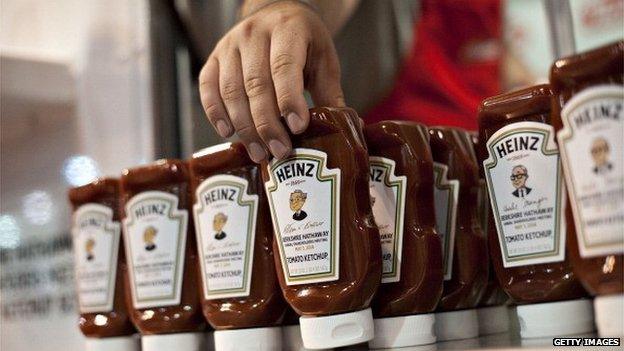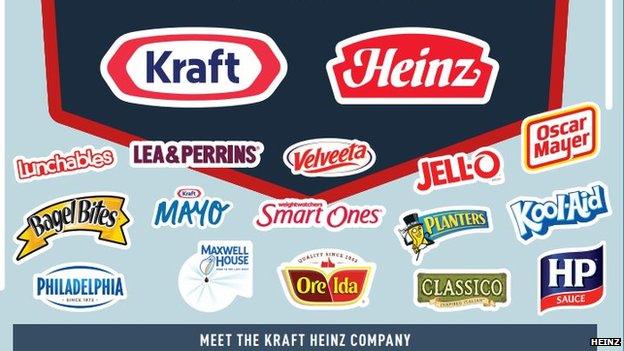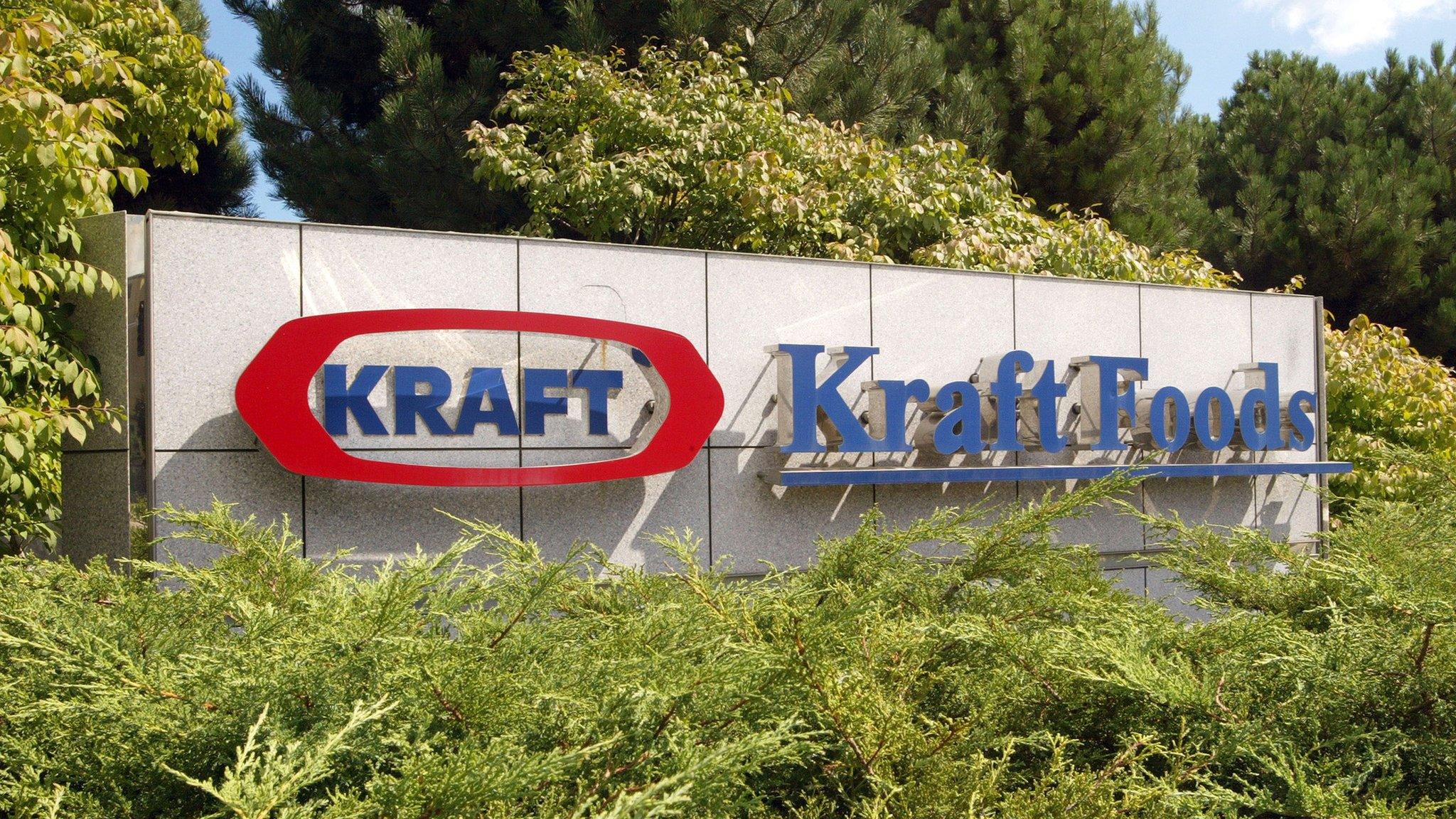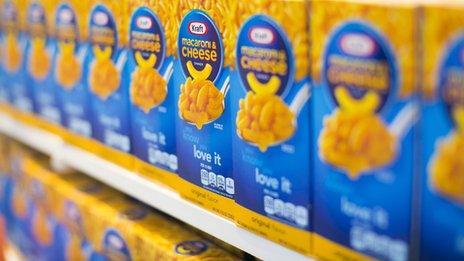Kraft shares soar on Heinz merger
- Published

US food giant Heinz is to merge with Kraft Foods Group, creating what the companies say will be the third-largest food and beverage company in the US, external.
Shares in Kraft closed up more than 35% on the news at $83.17 in New York.
The deal was engineered by Heinz's owners, the Brazilian investment firm 3G Capital, and billionaire investor Warren Buffett's Berkshire Hathaway.
Heinz shareholders will own 51% of the combined company with Kraft shareholders owning a 49% stake.
3G and Berkshire Hathaway bought Heinz two years ago for $23bn and took the company private in 2013.
Mr Buffett, Berkshire Hathaway chief executive, said: "I am delighted to play a part in bringing these two winning companies and their iconic brands together.
"This is my kind of transaction, uniting two world-class organisations and delivering shareholder value. I'm excited by the opportunities for what this new combined organisation will achieve."
The combined firm, Kraft Heinz Company, expects to make annual cost savings of $1.5bn (£1bn) by the end of 2017. Its brands will include Kraft, Heinz, and hotdog maker Oscar Mayer, with combined sales worth some $29bn.
Alex Behring, chairman of Heinz and the managing partner at 3G Capital, said: "By bringing together these two iconic companies through this transaction, we are creating a strong platform for both US and international growth."
John Cahill, Kraft chairman and chief executive said: "We look forward to uniting with Heinz in what will be an exciting new chapter ahead."

The deal
Kraft shareholders will receive a special cash dividend of $16.50 per share as part of the deal.
A special dividend payment of approximately $10bn is being funded by Berkshire Hathaway and 3G Capital.
Mr Behring will become chairman of the new company, Mr Cahill will be vice chairman, and Bernardo Hees, the chief executive of Heinz, will be appointed chief executive of the new company.
Regulators and shareholders from Kraft still need to approve the deal, but the boards of both companies have unanimously approved it. It is expected to close in the second half of this year.
Brands
The new Kraft Heinz Company and will be co-headquartered in Pittsburgh and the Chicago area.
The company, which Heinz says will be the world's fifth-largest food and drink company, will have brands including Philadelphia, famous for soft cheese, and frozen potato-product company Ore-Ida.
HP Sauce and Lea & Perrins, which produces Worcestershire sauce, are Kraft Heinz brands likely to be familiar to British consumers.
In 2010, Kraft took over chocolate maker Cadbury, but in 2012 spun the firm off as part of its global snacks business Mondelez, which includes brands such as Oreo biscuits and Trident gum.
According to retail consultancy Conlumino, the top three US food companies in 2014 by sales were drinks firm Pepsico, food giant Nestle's North American division, and Coca-Cola.

The figures behind the Kraft deal
Jorge Paulo Lemann
Ranked as Brazil's richest man by Forbes
Competed in the singles tennis Wimbledon Championships in 1962
Co-founded global investment firm 3G Capital in 2004
Owns controlling stake in Anheuser-Busch InBev and Burger King
Warren Buffett
Ranked as one of the world's richest men by Forbes
Chairman and chief executive of holding company Berkshire Hathaway
Owns companies ranging from car insurance to jewellery
Joined forces with 3G to buy Heinz in 2013

Neil Saunders, Conlumino's managing director, told the BBC that the main challenges facing the new company included revitalising product lines and marketing.
He said Kraft in particular had some products which "look like they come from the 1970s".
"The packaging isn't innovative, and the product hasn't really moved on," he said, adding that it had not sought to take advantage of consumer interests such as health.
Mr Saunders said that there "will inevitably be some job losses" in back office positions such as finance, marketing and IT after the merger.
However, the company's expectations of $1.5bn per year cost savings may be an overestimate, he said.
- Published25 March 2015

- Published17 March 2015
